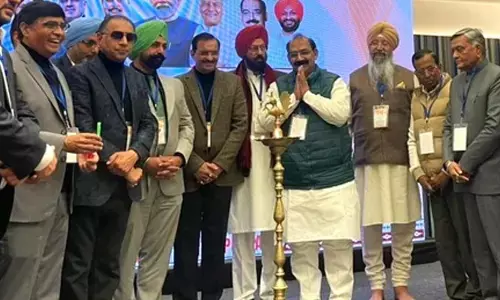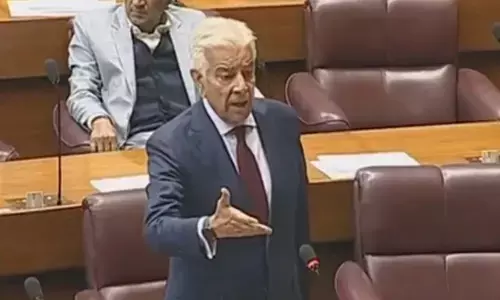Sedition: Dhobi Pachhad By Law Commission

Dhobi Pachhad is a strategy adopted by wrestlers in the ring aimed at defeating the rival wrestler. Almost in all cases, wrestlers who use this strategy emerge victorious.
After the historical judgement of 1962, Kedarnath Singh Vs. State of Bihar in which the Supreme Court ‘s Constitutional bench , though upholding the provision came down heavily on Section 124 A of the Indian Penal Code (IPC) as it deals with sternly the offenders of Sedition, the TukdeTukde gangs, Azadi gangs, CAA- NRC gangs, Khalistani and Naxalite gangs and all other divisive gangs were buoyant. The advocates against this criminal provision also termed it as a relic of colonialism. At one stage even the Apex court expressed its mind in an obiterdicta to strike it off! The Apex court further suspended Section 124 A in May 2022. However, the government sought some time to take a stand on this contentious issue.
Accordingly, in 2016 the Law Commission of India was asked to study the pros and cons of Section 124A of IPC and submit its report. Now, after a long exercise into the subject matter, the said Commission headed by Ritu Raj Awasthi, former Chief Justice of Karnataka High Court has submitted its Report along with recommendations to the Law Ministry.
The Report, according to the sources has emphatically favoured the continuation of Section 124 A stating that threat to the security of India persists. It has also recommended that the offenders should be punished for life imprisonment and attempt to commit the offence should attract an enhanced imprisonment of ten years instead of three years at present. In order to avoid the misuse of the provision, it has recommended a preliminary enquiry into the allegations before registering the FIR.
The Report has sent shock waves in the anti-national lobby within the country as well as outside India. The government is likely to accept the report and recommendations of the Law Commission. In fact, some more stringent provisions ought to be made to fight the menace of anti-national and divisive forces and their supporters effectively. The additional provisions like establishment of fast track courts for early disposal of cases of sedition, general refusal of bail to the accused charged under the section of sedition, enhanced punishment of death or life imprisonment to convicts in case of proven offence of sedition and enhanced punishment of life imprisonment for the proven case of attempt to commit the offence of sedition will go a long way to wipe out the anti -national termites.
IF WIFE EARNS MORE, SHE MAY NOT GET MAINTENANCE
In a major relief to the estranged husbands, whose incomes are less than their wives, a Sessions Court in Mumbai has ruled that in such cases the wife may not be entitled to the grant of maintenance.
Sessions judge CVPatil hailed that though an earning wife is also entitled to maintenance, but for that other circumstances like as to whose income is more will also have to be considered. However, the Revision Court directed the man to pay Rs. 10,000 per month towards payment of maintenance of the young child.
OU LAW FACULTY TO HOLD NATIONAL SEMINAR
The Faculty of Law of 123-year old Osmania University will hold a National Seminar on the theme ‘Marching towards Platinum Jubilee of Indian Constitution: Experiences and Expectation’ from August 7 to 9.
The 3-day seminar will be attended by leading academicians, jurists, advocates and decision makers in the government.
The broader themes of the seminar, inter alia, are: intention of framers of the Constitution, journey of the Constitution since 1950 to till now, basic structure doctrine, independence of judiciary, judicial review, enlargement of Fundamental Rights, recent trends in changing contours of social and economic justice, federalism, rule of governors and local self-government.
The dean of the Faculty of Law, Prof Gali Vinod Kumar is the Convenor.
REFUSAL TO MARRY A ‘MANGLIK’ GIRL, LEGALITY
The apex court in a case involving astrology, stayed the order of the Allahabad High Court and directed the Head of Astrology Department, Lucknow University to determine if an alleged rape victim is a Manglik by examining her Kundali.
A vacation bench comprising Justice Sudhanshu Dhulia and Justice Pankaj Mithal passed the said order after taking suo motu cognisance of the matter on June 3.
The highcourt passed the order in a bail application filed by the accused in a case of alleged rape through false promise of marriage. The defence of the accused is that the marriage could not be performed as the complainant is a ‘ Manglik’.
DELHI-HC DECRIES TENDENCY TO ROPE ALL RELATIONS IN 498 A MATTERS
A division bench of the Delhi High Court comprising Justice V Kameswara Rao and Justice Anoop Kumar Mendiratta in a judgment delivered in a case entitled, Vikram Rahul Vs. Delhi Police came down heavily on the growing tendency amongst the women to rope in all the relatives of husband including minors in case an FIR is lodged with reference to matrimonial disputes. The court also added that the abuse of the Section 498 A ,IPC has been substantially noticed though the salutary purpose of the enactment cannot be ignored in any manner.
The court directed the Delhi police commissioner to issue the appointment order to the petitioner who had cleared all tests successfully for the post of sub-inspector, but was not given the appointment order in view of his name appearing in the FIR.
The court observed that merely being named in the FIR cannot be treated as an impediment for public appointment, unless the involvement is substantiated on investigation, specially, in relation to matrimonial offences.








